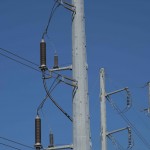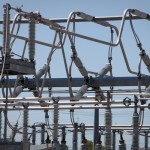ERCOT: So, About that Chance of Rolling Blackouts…
On a certain level, you have to feel a bit of sympathy for the Texas grid, managed by the Electric Reliablity Council of Texas (ERCOT).
It’s a well-known fact that there isn’t enough power in the state to meet the grid’s guidelines. The group behind the grid would like to have a “reserve margin” (how much of a cushion of generation capacity there is during times of peak demand) of 13.75 percent. But this summer it’s projected to get down to twelve percent, and drop even further in the coming years. So they’re being cautious, telling people that things are going to be tight.
But at the same time, you don’t want to scare everyone. And you don’t want to look weak.
This quote pretty much sums it all up:
“You know, we want to get the message out of reduced usage during peak demand. At the same time, we want to get the message out that ‘Texas is open for business’,” Donna Nelson, the chair of the Public Utility Commission, said at a meeting last month. “We want to get the message out, peak demand, turn your thermostat up a couple degrees, don’t do your laundry, those kinds of things. But we don’t want to say, ‘if you don’t we’ll have rolling outages’, OK? So, it’s a fine line to walk.”
Fine line is an understatement.
After testimony this morning at a state senate committee by ERCOT CEO Trip Doggett, the Associated Press ran a story titled ‘Texas electricity supply will be tight.’ It begins: “The Texas power grid barely has enough electricity to meet demand this summer, and an unexpected drop in generation or spike in demand could lead to rolling blackouts.”
That’s not the kind of story ERCOT wants to read. And sure enough, a few hours later, the group sent out a statement saying, “Although ERCOT expects tight reserves this summer, it has sufficient generation available to meet anticipated summer demands.” And they scheduled a media call-in later in the day to reassure folks that the outlook hasn’t changed.
I Know What Your Grid Did Last Summer
During the record heat and drought of last summer, the grid experienced record demand. ERCOT had to declare emergencies seven times and shut power down to interruptible customers twice to avoid widespread rolling outages. (Interruptible customers are large-scale industrial clients that take discounts on energy rates in exchange for volunteering to lose power first when the grid is stressed.) But there were no rolling outages.
So far this summer we’ve had one close call, during a string of triple-digit temps the last week of June. But the grid held, despite record demand for that time of year, and ERCOT didn’t make any emergency declarations.
This year, ERCOT maintains there will likely be emergency declarations like last summer, but that blackouts aren’t likely. (ERCOT has been consistently saying for months that they don’t anticipate blackouts this summer.)
There is, however, a caveat. During his testimony to the the state Senate Business & Commerce Committee, ERCOT CEO Trip Doggett examined a worst-case scenario. “If a higher-than-normal number of forced generation outages occur during a period of high demand, or if record-breaking weather conditions similar to last summer lead to even higher-than-expected peak demands,” his presentation says, “the ERCOT system is likely to have insufficient resources available to serve those demands.” Translation? Rolling blackouts. It all depends how much this summer ends up like last year’s. Something we won’t know until August.
Some Don’t Like It Hot
The Energy Information Administration, the government’s energy research agency, released a report yesterday saying that demands at the peak of summer are expected to be less than they were last year. Last summer, that reserve margin we mentioned earlier — how much extra power is available on the grid — went down to seven percent.
But the report also notes that there is slightly less capacity than last summer. And our stubborn independence is hurting us as well. “The lack of new capacity within ERCOT is compounded by the fact that ERCOT has limited interconnections with the adjacent power grids,” the report says, “reducing its ability to obtain additional help when a supply shortage arises.”
So, without any new generation slated to come online this summer, there’s really only one thing to watch if you’re trying to anticipate blackouts: the weather. If the summer continues to be milder and wetter than last year, ERCOT says the grid should do fine. But if it isn’t? Time to find that flashlight.




